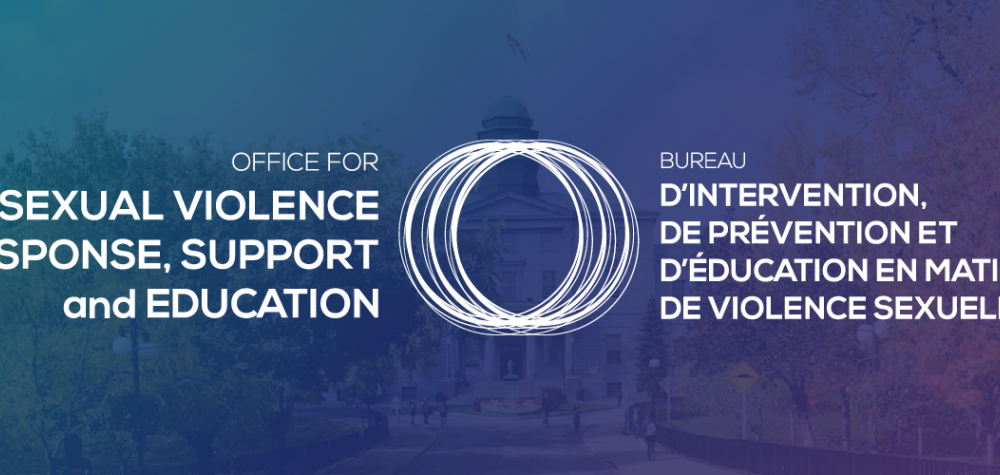TW: Sexual violence
On paper, the McGill administration’s response to sexual violence is framed around supporting survivors and creating a safe campus space. These objectives are outlined in the university’s Policy Against Sexual Violence, in addition to their prevention resources and procedures for reporting and investigating. The policy also states that it values both “trauma-informed investigations” and “procedural fairness.”
In December 2020, a petition that garnered upwards of 50,000 signatures called on McGill to acknowledge and enact safety measures to protect students after multiple assault allegations surfaced against a student in McGill’s New Residence.
Despite significant media attention and calls from the wider community to address the allegations, McGill’s only communication with the student body was a series of tweets and a single email stating that they were aware of the situation and were examining the allegations. A year after the alleged incidents occurred, the case is assumed to have been resolved—McGill policy states investigations must be conducted and concluded within 90 days of its initiation.
The lack of transparency around sexual violence cases can be attributed to Quebec legislation on privacy, specifically the province’s Act respecting Access to documents held by public bodies and the protection of personal information. In a statement to The McGill Tribune, Frédérique Mazerolle, a McGill media relations officer, addressed this legal constraint, speaking to how it affects McGill’s response to sexual violence reports and investigations.
“McGill may not share information on any particular case, ongoing investigation, or on investigation outcomes since—like all universities in the province—the university is bound by Quebec privacy law,” Mazerolle wrote.
The act prohibits institutions from disclosing any disciplinary measures imposed on the accused, including to the survivor. The nature of this policy has resulted in it being dubbed Quebec’s “Code of Silence.” Students across Quebec have called for the act to be amended to allow universities to inform survivors of any sanctions imposed on the offender. A group at UQAM composed of researchers and survivors of sexual violence convened in June to investigate how the province’s privacy laws affect disclosures of sexual assault in university settings.
The Quebec government has adopted legislation revamping the privacy laws the UQAM group is interested in. The new legislation, once rolled-out, will allow educational institutions like McGill to share the disciplinary procedures taken against the accused with survivors confidentially. The sharing of the outcomes will not extend to the wider public, however.
The lack of transparency surrounding investigations has made some students feel unsafe on campus. Andi Bloom, U1 Arts and a student involved in publicizing last year’s petition on the allegations of sexual assault in New Residence, where she lived at the time, said she noticed that students living in residence were constantly on edge.
“I know being in [residence] last year, students really did feel very anxious all the time, especially when we didn’t even know if the perpetrator was in the building or not,” Bloom said. “We did not know whether we were going to bump into him in the hall [….] It was a very triggering thing for many people. We did not know if there would be consequences for his actions [….] There was nothing.”
Taylor*, a U1 student and survivor of sexual assault at McGill, argued that the legal framework in Quebec on sexual violence hinders campus safety and community support due to the lack of public accountability.
“There are a lot of things that would make me and a lot of other students feel a lot safer,” Taylor said in an interview with The McGill Tribune. “But it’s not feasible without completely readjusting the legal framework. I guess number one, people want to know if someone’s been held accountable. McGill is sworn to confidentiality, which is understandable, but also pretty terrible [that McGill’s] hands are tied. There are so many policies in place that they have to put legalities before their students.”
McGill provides various resources offering support for survivors on campus, such as the Office of Sexual Violence for Response, Support and Education (OSVRSE), and the Sexual Assault Centre of the McGill Students’ Society (SACOMSS). These organizations support survivors and provide education on sexual violence.
In an interview with the Tribune, OSVRSE’s sexual violence education advisor, Maha Cherid, discussed OSVRSE’s efforts in supporting survivors and working to foster a campus free from sexual violence.
“We are really working on trying to make sure that everyone feels like they can be here, that their place is considered just as worthy as anybody else’s,” Cherid said. “We emphasize the survivor-centric, trauma-informed approach, [and] acknowledging the trauma not only on the person, but on the community [….] Everything that we do in our work is to provide a sense that [survivors] can reach out to us anytime and we will do our best to provide as much support as we can.”
While the organizations provide critical support to survivors throughout formal investigations, the services and accommodations offered at McGill have their limits.
“Once the investigation process is over, [since OSVRSE’s] counselors or social workers are not technically therapists, […] they kind of let go of you more or less,” Taylor said. “You can still check in but your routine appointments aren’t there anymore. It is just kind of jarring because who you are working closely with for a long time throughout an investigation process, you just pretty much lose that contact and you lose that consistency, the minute the process is done. You get your debrief and you are kind of left on your own.”
As Taylor noted, this weak support network can leave survivors to deal with the lasting repercussions of their trauma mostly on their own. It can also be difficult for survivors to adapt to a learning setting whilst dealing with trauma, given the inflexibility of McGill’s academic accommodations.
“The repercussions of being a survivor of sexual assault last long-term,” Taylor said. “It is psychological trauma, you’re still dealing with that long after you’re in your window of extenuating circumstances. So it is a challenge for McGill students to readjust.”
The lack of clarity surrounding McGill’s reporting procedures is another element many students believe prevents survivors from coming forward. Jessica Macknofsky, U2 Arts, stressed that transparency is crucial in encouraging survivors to come forward.
“I think it is really important to have transparency on how [McGill] handles certain reports,” Macknofsky said in an interview with the Tribune. “When they are transparent in their proceedings, other [people] who are going through the same thing will be more inclined to go toward them when something occurs. Right now I don’t see [people] being inclined to report whatsoever.”
In an effort to increase awareness of the various reporting avenues and campus supports for sexual violence, McGill launched the Office for Mediation and Reporting (OMR) last spring. The OMR centralizes information about sexual violence reporting and support services at McGill. The university also promotes its various reporting channels through the “Supporting Survivors” module in the mandatory sexual violence education program It Takes All of Us.
Bloom felt that although the administration is willing to support survivors, they still fall short in the face of certain policy technicalities.
“I really do believe that they try to [be survivor-centric],” Bloom said. “I don’t think in practice it has been carried out effectively. The way that I was interacting with the administration [last year] really felt very pessimistic.”
Bloom also acknowledged that while the administration’s technical stance on last year’s case may have been necessary considering the legal constraints, a little more “humanity” from the administration might have been beneficial for survivors.
“We sort of felt from the get go that there were much more social movements than there were administrative movements. The students really seemed to want to care about this, they wanted to feel safe, they wanted to feel protected, they wanted some semblance of justice to happen,” Bloom said. “Through McGill it felt very bureaucratic, very logistical, very technical, which I get sometimes is what it has to be, but oftentimes that is not what people need.”
*Taylor’s name has been changed to preserve their anonymity.
For any member of the McGill community in need of support regarding sexual violence, the OMR can be reached at 514-398-6419 or [email protected], OSVRSE can be reached at 514 398 3954 or [email protected], and SACOMSS can be reached at (514) 398-8500 or [email protected].











Pingback: Revised McGill sexual violence policy allows survivors to know disciplinary results of their cases - The McGill Tribune